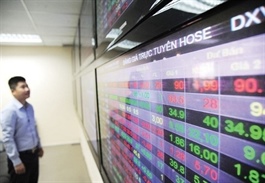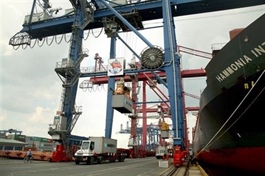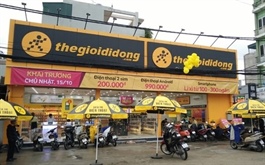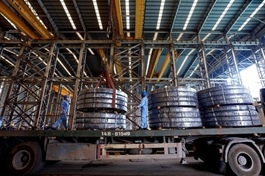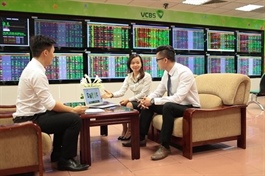Reporting still to fully reach global norms
Reporting still to fully reach global norms
Vietnam’s recent regulatory reforms, aimed at aligning with international standards in reporting, accounting, and market infrastructure, are designed to enhance transparency, attract foreign investment, and elevate the market from frontier to emerging status.

At the Vietnam Listed Companies Awards (VLCA) 2024, held in the Central Highlands city of Dalat last week, progress in English-language reporting was noted, but significant gaps remain. Among 96 participating companies, only 36 produced annual reports in English, accounting for 37.5 per cent – a slight improvement in percentage terms, but a drop in absolute numbers compared to figures from last year.
Meanwhile, corporate environmental impact disclosures are gaining traction, with this year marking the second time such criteria were mandatory in evaluations.
Although the total number of reports addressing greenhouse gas reduction declined due to fewer participants, the percentage of disclosures grew, reflecting a gradual shift towards prioritising environmental, social, and governance transparency.
“More companies recognise the importance of addressing environmental and social issues in their annual reports, aiming to communicate these priorities to shareholders and investors,” the VLCA reported.
However, the VLCA also noted that many firms still meet only basic governance requirements and fail to adopt best practices.
“Company reports often lack depth in discussing market positioning and environmental metrics,” the VLCA said, adding that sustainability goals, social responsibility initiatives, and emissions data remain underreported. “Growth in English-language reporting also remains slow, highlighting the gap between Vietnamese and international transparency standards,” it added.
Foreign investors face additional challenges due to differing accounting standards. Vietnamese companies follow the Vietnam Accounting Standards (VAS), while international investors rely on the International Financial Reporting Standards (IFRS), leading to valuation inconsistencies.
The VAS allows asset revaluation only in limited circumstances, unlike the IFRS, which permits fair value adjustments, offering a more accurate view of asset values.
“For example, under the IFRS, employee stock ownership plans are recognised as expenses over time, directly impacting profits,” an industry expert said.
Vietnam plans mandatory IFRS adoption after 2025, with companies such as PVTrans and PVT Logistics viewing this shift as essential for improving financial transparency. Similarly, aquaculture firms like Nam Viet and Minh Phu hold land with market values far exceeding book values, which cannot be adjusted under the VAS.
Beyond reporting and accounting, Vietnam’s market infrastructure also lags behind international standards. The lack of a central counterparty (CCP) system, standard in 80 per cent of global markets, is a key challenge. Currently, Vietnam operates on a T+2 settlement cycle, but without CCP, settlement processes lack the security and efficiency seen in developed markets.
To address these issues, Circular No.68/2024/TT-BTC, issued in September, introduced amendments to regulations on securities transactions, clearing, settlement, and disclosure.
The circular allows securities firms to act temporarily as clearing agents for foreign investors without requiring upfront margin deposits, in a move welcomed by FTSE Russell analysts. If fully implemented, analysts believe the CCP could facilitate Vietnam’s upgrade to emerging market status.
Ta Thanh Binh, CEO of the Vietnam Securities Depository and Clearing Corporation (VSDC), emphasised that structural changes are critical for achieving an upgrade.
“While we have introduced technical solutions, we must ensure trading and settlement operate as they do in developed markets,” Binh said, noting that the VSDC has proposed a subsidiary dedicated to CCP implementation under the amended Securities Law.
Young Lee, head of Asia Equities at Morgan Stanley, projected that an upgrade to emerging market status could pull in up to $800 million from passive investors tracking FTSE indices, $2 billion from other passive funds, and an additional $4-6 billion from active investors.
“This structure allows foreign investors to engage in T+2 trades without prefunding, removing a major barrier to market access and supporting future trading growth,” Lee said.





